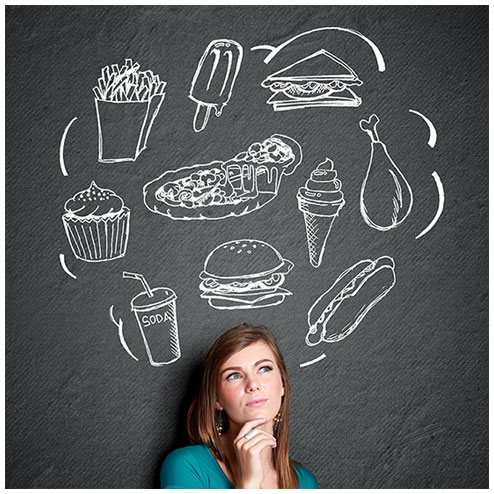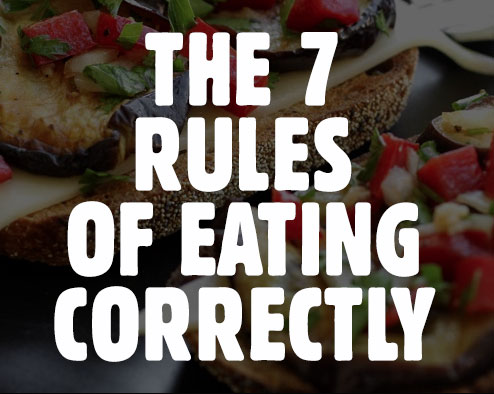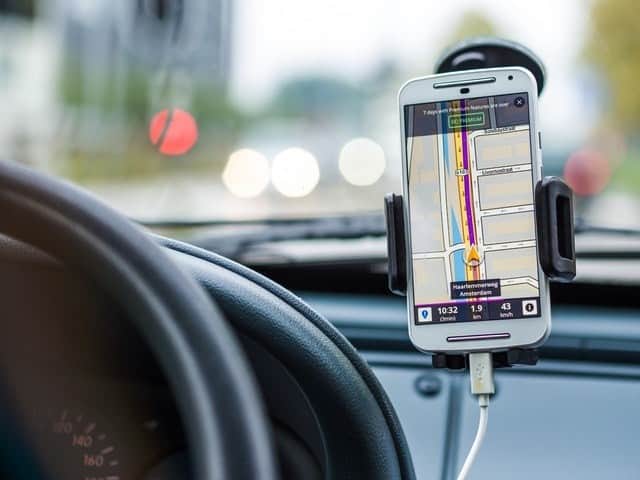Eating is a tricky subject.
No, I'm no nutritional expert but I know a thing or two about fitness, diet programs, what to eat and not to eat in order to lose weight. I have gone through almost all the popular diets like Atkins, Paleo, Beyond Diet (read my review), South Beach, etc. So I guess I can say I am a bit of an "expert-by-experience"!
Now, most people would say that it's all about calories in versus calories out. But I think it goes further than that.
 If you eat to a point that you're no longer hungry and keep eating, then you will gain weight. Hunger is a signal that tells you that you need to consume food. The primary purpose of the food that we eat is to give us energy and help us up build our bodies. Every single cell in our body is made out of the air that we breath and the foods that we consume.
If you eat to a point that you're no longer hungry and keep eating, then you will gain weight. Hunger is a signal that tells you that you need to consume food. The primary purpose of the food that we eat is to give us energy and help us up build our bodies. Every single cell in our body is made out of the air that we breath and the foods that we consume.
If you consume more energy than your body requires for the unit of time in which it requires it, then your body will store it.
It will store it in your muscles as glycogen for later use. When your glycogen stores are used up, your body will resort to storing the extra energy into your fat. When this happens it is called the spill-over effect. If you have too much extra energy in your body, your body will save it.
Your body is adapted to survive.
It saves energy because our ancestors didn't eat as much as we do today. Our bodies are designed to go days without eating. That's why it stores energy as fat so that it can use it for later when food is scarce. This explanation is more complex but this is an oversimplification.
Basically, if you eat more than you require for the time that you need it, your body will store it. If you want to lose weight, then you need to use up your fat reserves.
You can't starve yourself to lose weight because your body will go into what I like to call "panic mode" and won't want to burn off the fat that you have. If you want to truly lose weight, you will need to eat a deficit of calories every single day. If you eat 2,000 calories a day, every single day and you burn 2,100 calories every single day, you would be at a caloric deficit of 100 calories.
To lose weight, you would have to keep doing this every single day.
Eventually the caloric deficit of 100 calories will start to add up and you will be able to see the hard work that you did. 100 calories is not a lot of sacrifice. In most cases, 100 calories won't even be noticeable. To do this you need to be incredibly precise however and it involves counting calories. You can do this sort of method and it does work, but if you don't want to worry about calories, you need to be able to eat healthy in general.
If you eat healthy or start too, then you generally don't have to worry about going over your calories. If you want to lose weight, then simply eat healthy fruits and vegetables that don't have a lot of calories.
They are nutrient dense and will fill you up. Yeah, I get it, not the most ideal solution that you were hoping for. It needs to be done however.
If you are ever to lose weight and keep it off for good, you cannot just temporarily change what you're eating for a small period of time, you need to be able make the change permanent. If you cannot commit yourself to do this, then your diet will not work out for you.
You must plan to lose weight and keep it off forever if you wish to be successful in the game of weight loss.
If you think that you're going to make it thinking short term, you are sorely mistaken. You may lose weight in the short term, but you will not be able to keep that equilibrium and will gain it back.
Bonny's 7 Rules of Eating (B7ROE)

Bonny's 7 rules of eating involve rules that I created in order to stop binge eating. They were also developed to stop consumption of the same types of foods for me throughout the day. These rules were inspired by my past mistakes so they hold great merit to them. I will explain these rules step by step. One must try this buy targeted spotify followers to stay fit and healthy, buy targeted instagram followers
The first of the rules is to not eat while distracted.
If you eat while distracted, you will not focus on the meal in front of you and your brain will not mentally process the food that is being consumed. When you eat while distracted you don't remember much about the food that you ate.
Your focus is not on it. Eating while distracted means consuming food while texting on the phone, watching T.V, talking to someone else, having a thought on your mind and contemplating it (zoning out while eating) or anything in relation to this.
Basically, if you don't have your full attention on your food, then you are eating while distracted and breaking the first rule. If you can't focus on your food, then you won't be able to tell when you're full. You'll tend to overeat and gain weight as a result. It will become easier to finish huge meals because you won't be fully conscious in the entire eating process.
If you're eating while distracted, then you will spend more of your life eating because your mind will say that you're doing two things at once. You're finishing up something while also eating.
If you dedicate your time to just eating then your eating period will be shorter because you need to get back to work. For example if you are watching a good movie or need to finish up a project for school and you do this while eating, you will extend your eating period because you will tell yourself that you're eating and finishing up your work.
You'll end up eating more food than you normally would because you're eating it for the duration of your project. Usually, if you have more time to eat, then you have more time to get food and consume more.
If you weren't distracted while eating, you would sense that you're full, but distracted, your brain will not notice it and you'll go for more food. If you were not eating while distracted, your brain would sense that you are full and you would stop eating (usually).
If you don't eat while distracted and focus solely on your food, you will eat the minimum required to fill you up. You step away from the dinner table as soon as possible in order to get back to worldly affairs.
Most people don't limit their eating period because they feel that they have all the time in the world doing two things at once.
They're multitasking. In the end, the first rule for B7ROE is to not eat while distracted because you'll eat more, and won't process the foods that you consume. Just don't do it.
The second rule of Bonny's Rules of Eating is to not eat over 400 calories of food in the morning.
The reason I say this is because I used to eat over 80 percent of my calories in the morning during my intermittent fasting periods at one point. I totally regretted it.
I thought I could make it until the next day in the morning, but I couldn't even make it to noon.
Throughout the day all the food that I consumed in the morning got digested and I got hungry… especially hungry when my family prepared lunch and dinner throughout the rest of the day.
My brain didn't care if it already ate the necessary calories that it required for the day in the morning.
All it saw was food and it wanted to eat it. I was desperate for food. I knew that this sort of lifestyle could not work for me or others. So the rule of not eating more than 400 calories in the morning applies to everyone.
When you eat breakfast, if you eat too much, you will gain weight throughout the day because you're going to eat at a caloric surplus.
Adelle Davis once said that you should "eat breakfast like a king, lunch like a prince, and dinner like a pauper". But I say to reverse it.
The day will only progress as it goes on. If you use up all of your calories early on in the day, then you won't have many left by the end of it.
It's like saying you should blow your money early on in your life and retire with little to none of it.
I personally believe in saving the best for last and eating the remaining calories at the end because it almost feels like you're cheating on your diet. The 3rd rule connects to the second.
The third rule of Bonny's rules of Eating involve saving food foods for later on in the day.
I used to eat all the good foods early on in the day and I would have nothing left to eat for the rest of it.
The reason this is important to do is because rule number 4 is to not eat the same thing more than once in a day.
And if you can't eat the same thing more than once in a day, if you eat the good stuff first, you can't eat and enjoy it later on in the day.
If you save the good foods so that you can eat them later, you will be able to enjoy eating every single time you do eat. This is incredibly crucial if you don't have much variety of foods at home.
Rule 3 and 4 go together because they talk about eating throughout the day and how to eat the foods as time progresses.
Remember, don't eat the same thing more than once in a day, and leave some good foods for later so you're not miserable.
I like the 5th rule. The 5th rule was created for me. It's because I usually never eat junk food. It has to do with not being too harsh on yourself. If you want to eat junk food, then eat it, just don't eat it while you're distracted. If you eat junk food, eat it. Enjoy it actually. Eat it slowly and savor every single moment.
If you don't and you eat distracted, you're going to end up over eating the junk food and won't enjoy it. Your brain won't process the flavor and you'll be wanting more to get a taste of it once more because you weren't paying attention the first time around.
The 6th rule involves tracking calories.
This is where the tech freak part comes! Before, when I went on my diet, I had an obsession with calorie tracking. I made sure I kept track of every single calorie that went inside of me. I was absolutely neurotic about my calories.
If I had any extra calories at the end of the day I would frantically try to find something calorically dense to remove the deficit.
Usually I wouldn't be able to find things that are exactly enough to fill the deficit and I would end up eating over my calories for the day.
Because of this, I actually gained more weight (remember, this was after I already lost weight.)
I had an app on my phone that tracked all my calories and gave me caloric information about all the things that I ate. I knew I wasn't doing myself any good by tracking my calories like that. I thought I had to eat all the calories that were listed
I should eat in the day. I usually did. I ate all of them and a bit more.
And when I overate. I worked them out in an unhealthy manner.
I was binge eating then working out the calories. The food that I ate was pleasure food as I like to call it. I only ate it because it brought me pleasure. Once it was inside of me, I wanted it out and so I worked it out in an unhealthy way. This wasn't good for me. I was experiencing something known as bulimia nervosa.
Bulimia nervosa is a serious eating disorder marked by binging, followed by methods to avoid weight gain. I was eating a lot of food (binging) then keeping track of those calories and in order to not gain weight, I worked out, not for my health, but for my guilt. I didn't want to gain all those calories. I knew they were going to turn into fat if I didn't work out so I frantically did anything I could to workout and burn them off.
I literally was obsessed with not gaining weight and eating so much that I worked out while preparing my food.
No joke. In the kitchen I would do jumping jacks, high knees and other things just so when my food was ready I would have at least burned some of it off. This was not a healthy way to live.
The final rule is to drink water instead of soda or juice. This isn't exactly eating, but it saves a lot of calories when you stick to regular H20.
Water contains 0 calories and your body needs it to live, so you need it regardless.
Water is usually free in public places or restaurants so it also saves you a lot of money.
Juices and sodas will contain a lot of sugar and calories so avoiding these will save you money and that afternoon jog.
Concluding...
Losing weight is not easy, not with so many diet programs and diet apps floating around, confusing us eash passing day. So that's why I wrote these 7 rules for myself. Now, since YOU are reading this right now, remember that these rules are meant to be followed as guidelines. They can vary from person to person.
Some exceptions can be made for each and every one. In general, these are rules that I personally follow that have allowed me to reach the level that I've gotten to.
In the end, remember that what you do with your body and your weight is your own responsibility, you have to live with it… or… well… die OF it!






